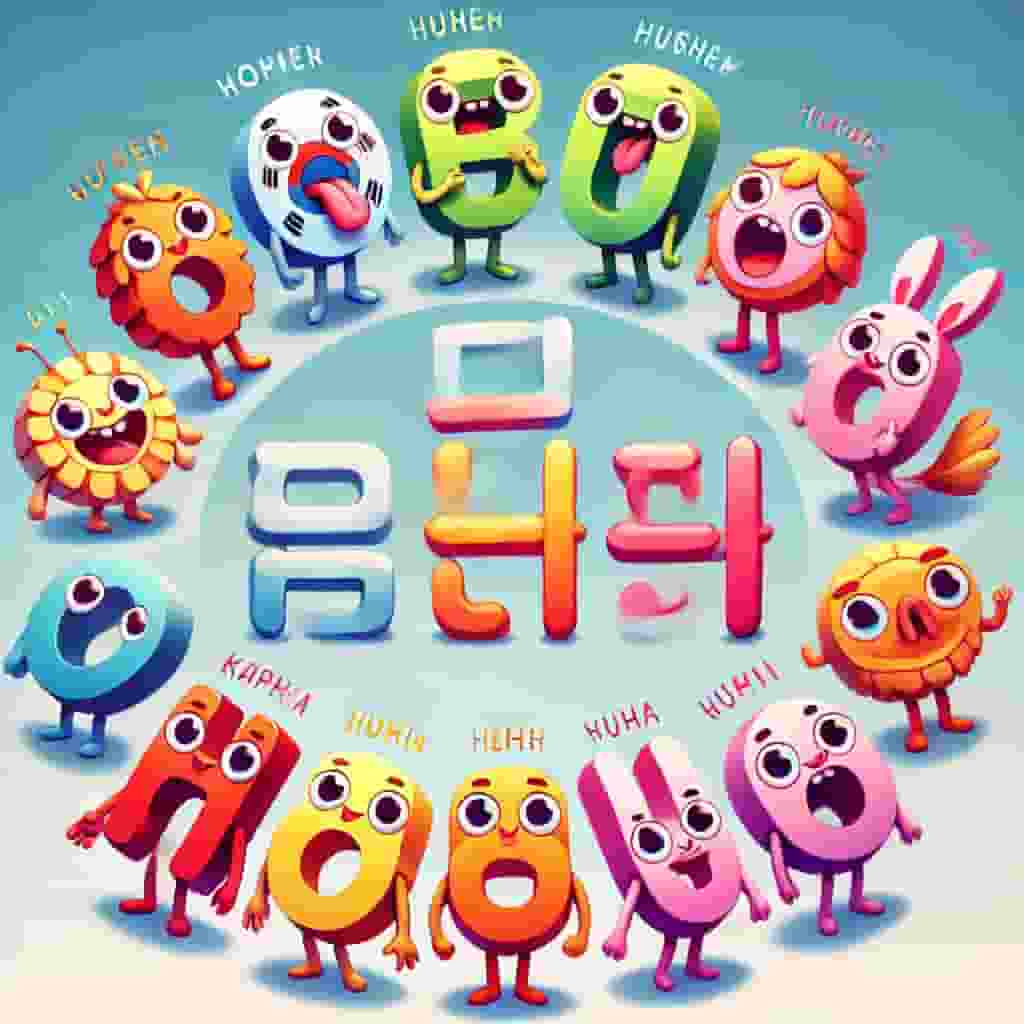3.2.2 Basic Vowels
# Pronunciation Guide
Korean has 10 basic vowels, each with a distinct sound. Understanding their pronunciation is essential for accurate communication. Here is a guide to help you pronounce the basic vowels correctly:
– **ㅏ (a)**: Pronounced like the “a” in “father.”
– **ㅑ (ya)**: Sounds like the “ya” in “yarn.”
– **ㅓ (eo)**: Pronounced like the “u” in “cup.”
– **ㅕ (yeo)**: Sounds like the “yo” in “yawn.”
– **ㅗ (o)**: Pronounced like the “o” in “so.”
– **ㅛ (yo)**: Sounds like the “yo” in “yoga.”
– **ㅜ (u)**: Pronounced like the “oo” in “moon.”
– **ㅠ (yu)**: Sounds like the “yu” in “yule.”
– **ㅡ (eu)**: Pronounced like the “u” in “put.”
– **ㅣ (i)**: Sounds like the “ee” in “see.”
## Writing Practice
Practicing writing Hangul vowels will help you become familiar with their shapes and improve your handwriting. Follow these steps to practice:
1. **Trace the Characters**: Start by tracing each vowel using a guide to get used to the shapes and stroke order.
– Example: ㅏ (Start with a vertical line, then add a short horizontal line to the right near the middle of the vertical line)
2. **Write Independently**: After tracing, practice writing each vowel independently, ensuring you follow the correct stroke order.
– Example: ㅣ (Draw a vertical line from top to bottom)
3. **Combine with Consonants**: Practice combining vowels with consonants to form syllables.
– Example: 가 (ㄱ + ㅏ), 고 (ㄱ + ㅗ), 그 (ㄱ + ㅡ)

### Examples in Words
Here are some examples of how basic vowels are used in common Korean words:
– **가 (ga)**: ㄱ + ㅏ (go)
– **나 (na)**: ㄴ + ㅏ (I/me)
– **다 (da)**: ㄷ + ㅏ (all)
– **라 (ra/la)**: ㄹ + ㅏ (radio)
– **마 (ma)**: ㅁ + ㅏ (heart)
– **바 (ba)**: ㅂ + ㅏ (sea)
– **사 (sa)**: ㅅ + ㅏ (person)
– **아 (a)**: ㅇ + ㅏ (morning)
– **자 (ja)**: ㅈ + ㅏ (sleep)
– **차 (cha)**: ㅊ + ㅏ (car)
– **카 (ka)**: ㅋ + ㅏ (camera)
– **타 (ta)**: ㅌ + ㅏ (ride)
– **파 (pa)**: ㅍ + ㅏ (green onion)
– **하 (ha)**: ㅎ + ㅏ (do)
These examples illustrate how vowels combine with consonants to create syllables and words. Practicing these combinations will help you become more comfortable with reading and writing in Korean.